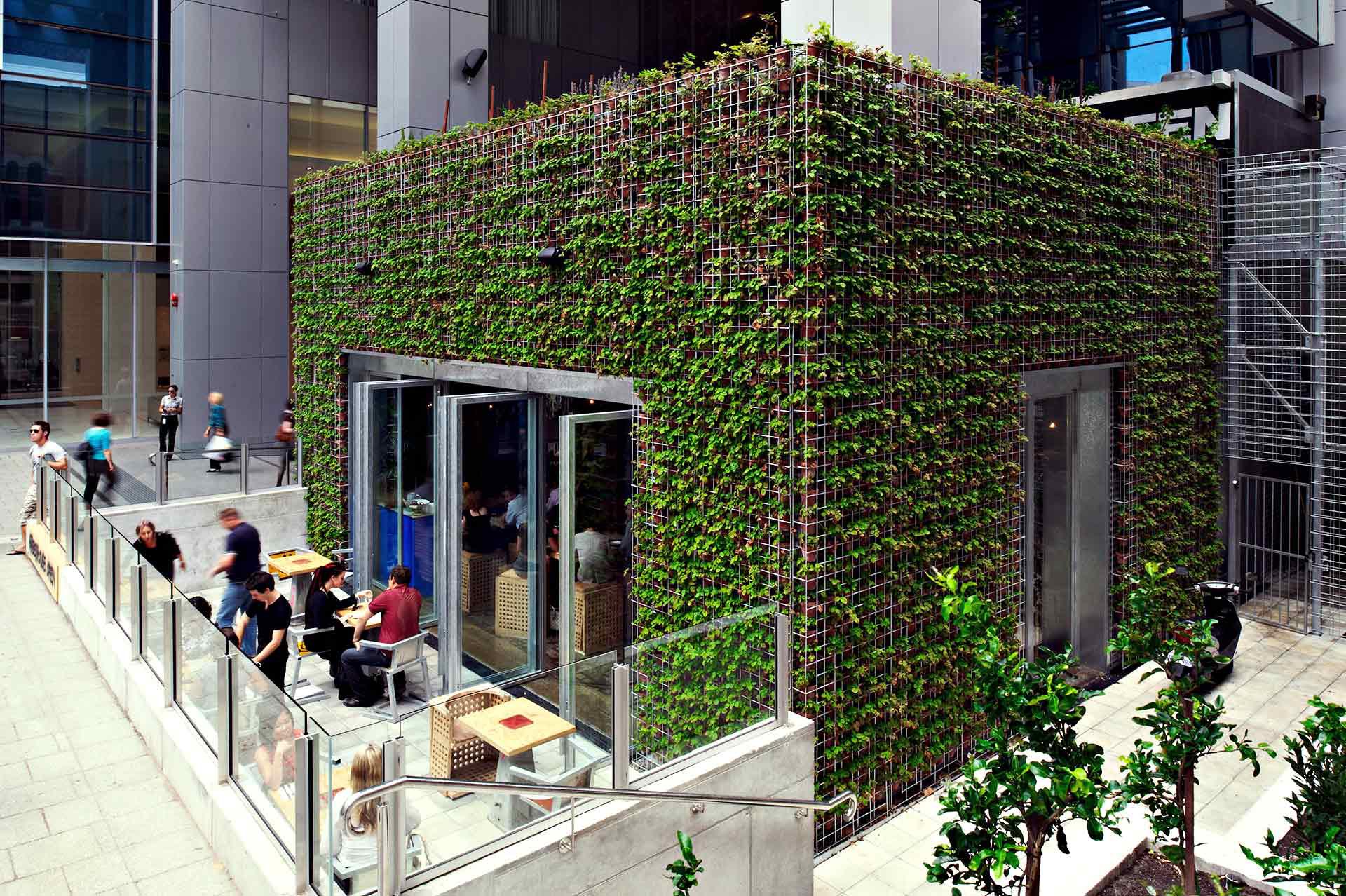Building an Edible Future: Joost Bakker
The Monbulk residence. Joost Bakker will be speaking at the upcoming Urbanity '17 conference.
When introduced, Joost Bakker's name is usually preceded by a list of titles: Eco-warrior, designer, builder, florist, artist, disrupter, landscape designer, restauranteur.
Whatever your preferred professional title, Bakker's work is primarily about recreating habitat, self-sufficiency and sustainability.
"I just believe that we don't need to generate any waste in any of the things that we do in everyday life," Joost said.
"We can live in a world that is sustainable and doesn't need to have an impact and we don't need to put anything in landfill. Everything endlessly reusable and recyclable - that's my philosophy."In any case, it would do Bakker a disservice to limit him by a title. Declared the “poster boy for zero-waste living” by the New York Times, Bakker shot to prominence in 2008 with the hugely successful Greenhouse pop-up restaurant and event space in Melbourne’s Federation Square – iterations of which later sprung up around the country.
In 2012, Bakker opened Silo, Australia’s first entirely composted, waste-free restaurant after noticing the huge amount of waste generated by the hospitality industry. Silo later morphed into Brothl, a soup canteen that collected used bones and leftovers from restaurants -- about 100 kilograms each week -- and turned it into rich broths.
The idea behind Silo and Brothl was to showcase that the otherwise highly wasteful hospitality industry can be zero waste.

Greenhouse by Joost, Perth, WA
Bakker has also designed and built a zero waste family home in the Victorian country, as well as a fire-resistant straw house in Kinglake -- sponsored by CSIRO -- in 2014, five years after that town was devastated by bushfires.
A proponent of biophilic architecture -- the vertical, potted, garden-walls designed by Bakker over a decade ago still feature in design magazines -- Bakker's raison d'être is more about changing behaviour and raising awareness than design or innovation.
The average Australian family produces 100,000 litres of greywater every year, that’s enough to grow 60 tonnes of potatoes and 40 tonnes of tomatoes. And we can do this in the middle of a city.
Biodiversity in our cities, urban food production, and a changing approach to building are just a few of the topics that Joost (pronounced "Yoast") Bakker will be speaking on at the upcoming Urbanity '17 conference.
Proudly brought to life by The Urban Developer, in partnership with Queensland Government and Brisbane Development Association, Urbanity '17 is a two-day conference held at Brisbane’s Royal International Convention Centre 28 – 29 September 2017.
Ticket registrations are open. Be quick to ensure you don’t miss out.















